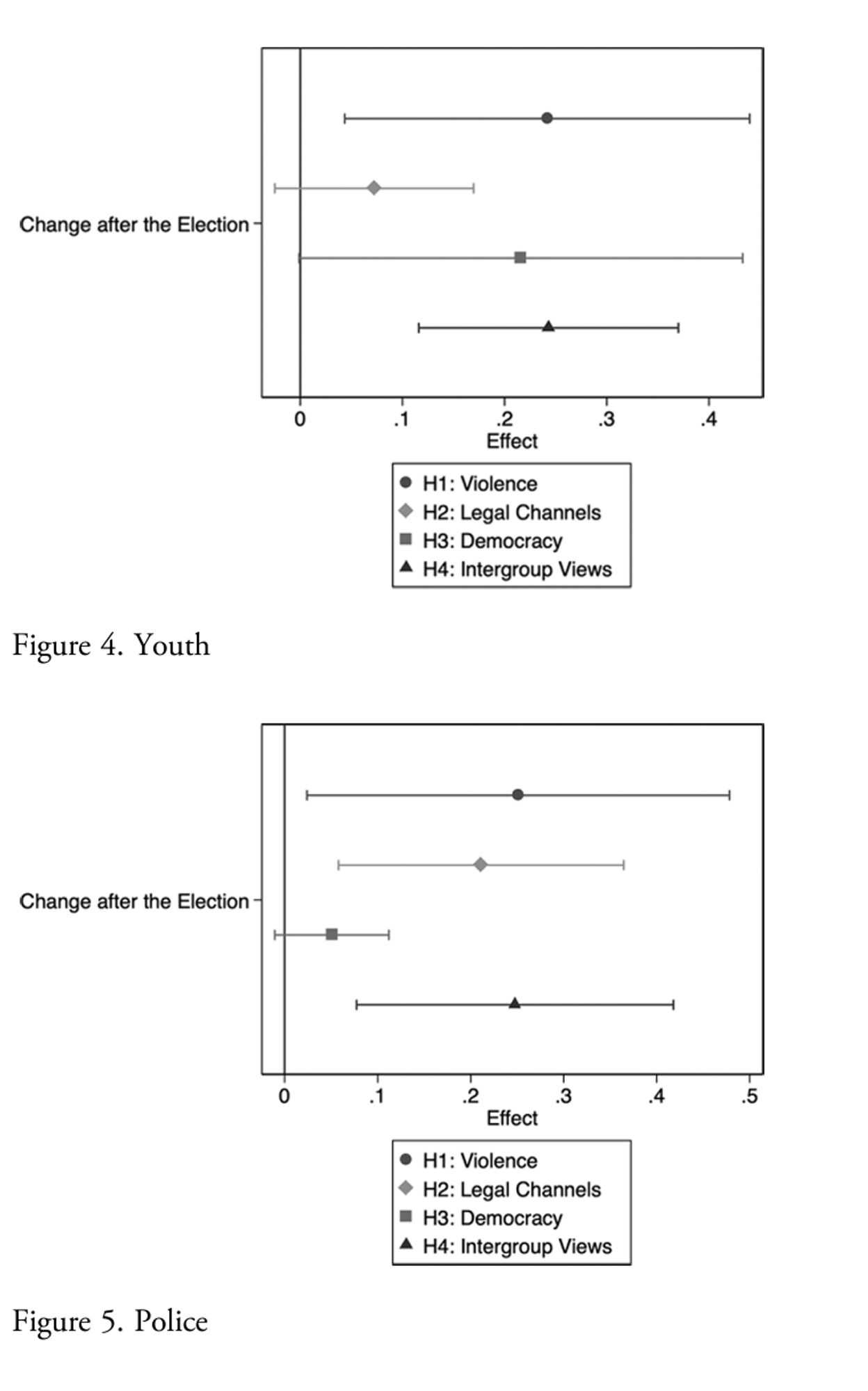
This is, of course, unless soldiers engage in human rights abuses. If people witness military abuse, public opinion subsides.
So, militaries may gain public approval by intervening in health crises because it signals state capacity and willingness to stop spread but police enforcement is seen negatively.
We find that securitization worsens public opinion in marginalized communities about the police but not necessarily for the military
Our panel data of police officers and youth party leaders suggest that the experience of the crucial election led to improvements in views about democracy and peace.

Anti-election violence programs focused on the individual level are likely to have less of an effect when overall experiences with governance improve.
We find that this was the case during the 2017 Liberian elections, which saw the first successful transition in power (an example of what we call a "crucial" election)
Grassroots initiatives that happen within larger political changes (e.g. democratization or successful electoral competition) could drown out effects.
Congrats!
